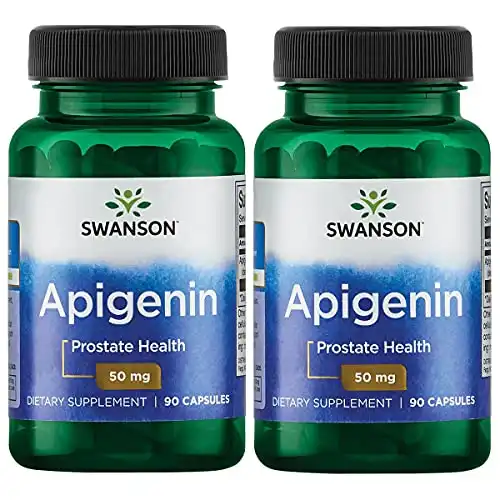Continuous external damage from intrinsic and extrinsic factors causes the skin to age, increasing wrinkling, sagging, laxity, and uneven skin texture. Increased skin thickness, dryness, altered barrier function, and hyperpigmentation are signs of aging skin, especially photoaged skin. In addition, the process is marked by skin degradation, collagen damage, and inflicting harm on dermal fibroblasts.
The major cause of the intrinsic aging process is collective damage to essential proteins found in the skin. As a result, wrinkled skin develops with age and the likelihood of having skin problems increases. Cell growth, lipid and sweat production, immunological function, and Vitamin D production are all slowed, resulting in a reduced ability to heal wounds, increased atrophy, increased vulnerability to external stimuli, and the emergence of benign and malignant skin diseases. The long-term effect causes the human skin’s durability and physiological function to deteriorate. Thus, understanding the critical process of skin aging is essential for developing better skincare products that can mitigate age-related variables.
Apigenin is present in plants, a flavone found in many fruits and vegetables recently discovered to have beneficial skin qualities. Apigenin is an antioxidant that may scavenge free radicals and oxidative stress. In addition, it has anti-inflammatory and anti-carcinogenic effects and the ability to repair skin damage caused by UVA and UVB radiation.
What Is Apigenin?
Apigenin is a flavonoid found in plants that are widespread and extensively dispersed. Flavonoids are a group of antioxidants found in plant tissues that occur spontaneously. Flavonoids help plants defend themselves against diseases and solar radiation. Some even help pollinating insects like bees, butterflies, and moths find their way to your garden. Plants also use flavonoids to regulate their metabolism. For example, this key ingredient in chamomile tea has relieved anxiety and stress for centuries.
It is the part of the naturally occurring sugar compound found in plants; sugar-binding molecules. It has been used in folk medicine to relieve anxiety and inflammation for millennia. It is a solid crystalline substance with a yellow tint that has been used to dye wool in the past. According to studies, Apigenin possesses antibacterial, antiviral, antifungal, and antiparasitic properties. Although it cannot kill all bacteria on its own, people can use it in conjunction with other antibiotics to boost their effectiveness.
Plants containing Apigenin and other flavonoids (such as quercetin and kaempferol) have treated ailments in many cultures. Research suggests that Apigenin has advantages on the heart and brain, NAD levels of the body, and anti-aging.

Apigenin and Anti-Aging
Before moving forward, it is necessary to discuss NAD (Nicotinamide Adenine Dinucleotide) to understand Apigenin.
NAD+ is a chemical required for DNA repair and mitochondrial activity by various enzymes. NAD is a nicotinamide adenine dinucleotide. It is a type of vitamin B3 that is bioactive. NAD can be found in all of your cells. NAD plays several critical and intricate roles in your body. It is involved in many of the chemical events within your cells. For example, it’s crucial for how your cells convert nutrients into energy. This phenomenon is referred to as energy metabolism. It also has an impact on how your cells react to stress.
Have you ever wondered how the energy in your body works? It comes from mitochondria, which act like electricity in a light globe, supplying power to your cells. NAD+ levels naturally decline as people age, but animal (old mice) studies have shown that by using NAD+ enhancers, NAD levels can be boosted, along with longevity and lifespan. NAD+ is a vast, bulky, unstable molecule that the human gut cannot absorb or digest. So why does the NAD level go down as people age? Apigenin could be the answer, but first, you must understand the enzyme CD38.
The enzyme CD38 regularly rises as people age. In the human body, CD38 degrades NAD+ and its precursors. People can ensure that their CD38 enzymes are lowered as they grow older. NAD+ levels then remain consistent, and the DNA repair enzymes have all the fuel they require to work appropriately. Boosting NAD+ and inhibiting CD38 would then be the best anti-aging strategy. People might combine NAD boosters and CD38 inhibitors for the best anti-aging results.
According to research and related articles, flavonoids decrease CD38, with Apigenin being the most effective flavonoid. Quercetin (an antioxidant plant pigment) is also beneficial in lowering CD38 levels. The International Journal of the American Diabetes Association stated that CD38 inhibitors like Apigenin improve factors like blood pressure, insulin sensitivity, blood sugar, and obesity in people with metabolic syndrome. In addition, Apigenin can kill cancer cells. Apigenin suppresses the enzyme CD38. However, larger quantities of Apigenin can block the CD38 enzyme, leading to immune system decline and heart failure issues. It is also required for other functions in the human body.
Apigenin Supplements We Like
-
$24.95 ($0.21 / Count)Buy on Amazon
by Double Wood Supplement
We earn a commission if you make a purchase, at no additional cost to you.
03/09/2024 06:37 pm GMT -
$39.98 ($0.67 / Count)Buy on Amazon
by N-Stac
We earn a commission if you make a purchase, at no additional cost to you.
03/06/2024 09:27 am GMT
Foods Containing Apigenin
Apigenin is found throughout the plant kingdom. Parsley, celery, celeriac, chamomile tea, oregano, sorghum, oranges, wheat sprouts, cilantro, onions, grapefruit, beer, and wine are sources to get Apigenin. Among these, the most popular sources are dried parsley and chamomile.
Apigenin is found in many foods, but parsley and chamomile tea or chamomile extract is mainly a good source. It is found in dried parsley at 45 mg per gram and dried chamomile flowers at 3-5 mg per gram. Fresh parsley has been shown to have as much as 215.5 mg of Apigenin per 100 grams. Green celery has a maximum concentration of 19.1 mg per 100 grams. While studies are limited and estimating an appropriate dietary intake is difficult due to the extensive range of foods containing Apigenin, it is likely around 20-25 mg per day. This number could be more significant, particularly among persons who eat primarily or entirely plant-based diets.

Benefits of Apigenin
Over the years, many studies have looked into the health advantages of Apigenin. It is well known for its antioxidant and anti-aging qualities, but it may also aid with inflammation, autoimmune illnesses, neurological disorders, and other conditions. Scroll below to know more.
Apigenin for Sleep
Insomnia can have a significant effect on health and well-being. The effectiveness of chamomile flower extract, a plant high in Apigenin, in enhancing sleep in people with insomnia not induced by medicine or medical conditions has been researched. While the chamomile had only a minor effect on rest, several persons reported a slight improvement in their ability to function the next day.
Apigenin for Testosterone
The hormone testosterone aids male fertility. It is essential for male growth and sperm production. Unfortunately, testosterone levels can drop as you get older, leading to weariness, erectile dysfunction, loss of muscle mass, and other unpleasant symptoms. Flavonoids like Apigenin have been demonstrated to prevent males from losing testosterone as they age. It may potentially boost the amount of testosterone produced by the testicles. Flavonoids can be obtained via a high-quality diet rich in fruits and vegetables to accomplish these benefits.
Apigenin for Anxiety
Apigenin can traverse the “blood-brain barrier,” which separates the blood in the body from the blood in the brain. As a result, Apigenin can influence the central nervous system. Although researchers aren’t sure how much of an impact Apigenin can have, studies utilizing chamomile extract (which contains a lot of Apigenin) have indicated that it can help you relax. In addition, Apigenin supplementation may aid with generalized anxiety disorder, according to specific research (GAD). According to the researchers, participants who took the placebo scored lower on anxiety assessments.
Apigenin for Blood Sugar
Another study stated that Apigenin may help you regulate your blood glucose levels by increasing the amount of insulin you produce. Insulin is the hormone that regulates blood sugar levels. It may also aid in the prevention of some diabetes-related health problems. Apigenin can help the cells that make up the walls of the circulatory system produce more nitric oxide (NO). As a result, it may guard against the damage that diabetes causes to the blood vessels.

Apigenin for Cancer
Cancer is when the body’s cells grow abnormally and spread across to other areas. Chemotherapy is now the most effective cancer treatment, although it has substantial side effects and can lead to drug resistance. As a result, scientists have turned to alternative chemicals, such as flavonoids like Apigenin, to treat prostate cancer, breast cancer, and other kinds of carcinoma.
Apigenin’s anti-cancer properties are now being investigated in clinical trials. Apigenin is thought to prevent cancer from spreading by causing the death of cancer cells (apoptosis). It also has anti-inflammatory qualities and may stimulate the immune system to help fight cancer cells. However, Apigenin is likely only modestly effective against cancer at the doses routinely used by people. Therefore, if Apigenin is ever suggested, it will almost certainly be combined with chemotherapy medications. Chemotherapy, radiation, and other well-studied medicines are currently the best treatments for most malignancies.
Chamomile for Anti-Aging
Antioxidants protect against oxidative stress generated by free radicals. Fine lines, wrinkles, hyperpigmentation, and other indications of aging are linked to oxidative stress. Chamomile is high in polyphenols and phytochemicals, which are potent antioxidants. It may help minimize signs of aging by shielding the skin from free radical damage.
Types of Chamomile
German chamomile (Matricaria Recutita) and Roman chamomile (Anthemis nobilis) are the two primary varieties of chamomile. Chamazulene, matricin, and bisabolol are the three major chemical constituents that give chamomile its skin and health advantages.
German chamomile has higher quantities of chamazulene and bisabolol [than Roman chamomile], and it’s extensively used in skincare products. Blue chamomile, derived from German chamomile oil, is another component you might notice on skincare labels. Chamazulene is generated during the distillation process and is not found in fresh flowers. The oil color is determined by the amount of chamazulene present and the method used to extract it. Blue tansy is a close relative of blue chamomile. However, it is not identical. While yellow and green German chamomile oils are available, blue chamomile oil contains more chamazulene.

How To Use Chamomile
You may use chamomile in your skincare routine in three ways: Chamomile tea, chamomile extract, and chamomile oil. With its relaxing anti-inflammatory and antibacterial characteristics, chamomile tea can help improve the health of your skin from the inside out. Moreover, it can help whiten the skin, minimize acne breakouts, and lighten dark spots. You’ll need topical treatments to see real benefits.
Chamomile tea is famous as a caffeine-free substitute for black or green tea and has an earthy, somewhat sweet flavor. Furthermore, chamomile tea is high in antioxidants, which may help to reduce the chance of developing ailments like heart disease and cancer.
Chamomile Teas We Love
-
$19.99 ($0.20 / Count)Buy on Amazon
by FGO Organic
We earn a commission if you make a purchase, at no additional cost to you.
03/09/2024 06:42 pm GMT -
$29.99 ($4.72 / Ounce)Buy on Amazon
by Twinings of London
We earn a commission if you make a purchase, at no additional cost to you.
03/07/2024 01:02 pm GMT -
$20.04 ($4.58 / Ounce)Buy on Amazon
by Bigelow
We earn a commission if you make a purchase, at no additional cost to you.
03/06/2024 09:33 am GMT
Health Benefits of Chamomile Tea
Chamomile tea is a popular beverage with health advantages. Chamomile is an herb derived from the Asteraceae plant family’s daisy-like flowers. Chamomile tea is made by drying the flowers and then infusing them with hot water to take out the chamomile extract.
Promotes Gut Health
It is impossible to ignore the usefulness of healthy digestion to overall health. Limited data suggest that chamomile can help with digestion by lowering the risk of some gastrointestinal problems. Chamomile extract has been proven to protect mice from diarrhea in several studies. Its anti-inflammatory characteristics are responsible for this. Another mice study indicated that chamomile could help prevent stomach ulcers by lowering stomach acidity and inhibiting the growth of bacteria that contribute to ulcer formation. Regardless of these findings, a more human study is needed to validate chamomile’s digestive significance in humans.
Improves Sleep Quality
Chamomile has some unique qualities that may help you sleep better. For example, it contains Apigenin, an antioxidant that attaches to specific receptors in the brain, promoting tiredness and reducing insomnia or the inability to sleep regularly. In one research, postpartum women who drank chamomile tea for two weeks had better sleep quality than those who didn’t. They also showed reduced indicators of depression, which is often linked to sleeping problems. In another trial, people who took 270 mg of chamomile extract twice a day for 28 days awakened less in the middle of the night.

Controls Blood Sugar Levels
Blood sugar levels have been proven to be reduced by chamomile tea. In addition, its anti-inflammatory properties could protect pancreatic cells from injuries inflicted by persistently high blood sugar. The health of the pancreas is crucial because it produces insulin, the hormone required to remove sugar from the blood. As per a study of 64 people with diabetes, individuals who consumed chamomile tea every day with supper for eight weeks had substantially lower blood glucose levels than others who drank water. Furthermore, several animal studies have discovered that chamomile tea can prevent future blood sugar spikes after meals by significantly decreasing fasting blood sugar levels.
Improves Heart Health
Flavones, a type of antioxidant, are plentiful in chamomile tea. Flavones have been examined for their ability to lower blood pressure and cholesterol levels; two crucial indicators of your risk of heart disease. Diabetic individuals who consumed chamomile tea alongside diets had significantly lower cholesterol levels, triglycerides, and “bad” levels of LDL than those who consumed water. More research is required to determine the effectiveness of chamomile tea on cardiovascular health, but including it in the diet is encouraged.
Protects Against Certain Types of Cancers
The antioxidants present in chamomile tea have been linked to a reduced risk of some cancers. For example, Apigenin is an antioxidant found in chamomile. Apigenin has been proven to kill cancerous cells in test tubes, especially those in the breast, gastrointestinal system, epidermis, prostate, and uterus. In addition, a study of 537 people found that those who consumed chamomile tea 2–6 times a week had a lower risk of malignant tumors than those who did not.

Adverse Effects of Chamomile Tea
The majority of people can safely consume chamomile tea. However, there have been reports of chamomile allergies, most likely to affect people allergic to daisy plants like ragweed and chrysanthemums. Furthermore, chamomile-containing cosmetics may irritate the eyes if they directly contact them. It can cause conjunctivitis, an inflammation of the eye’s lining. Furthermore, it’s also worth noting that the safety of drinking chamomile tea in young children, pregnant or nursing women, or persons with liver or renal illness has yet to be determined. Despite this, there have been no instances of life-threatening side effects or toxicity from chamomile tea use.
Final Thoughts
Apigenin’s anti-oxidant characteristics aid in the prevention of aging. It is high in vitamin c, which may offer several health benefits, including lowering cancer and heart disease risk. Although the study on Apigenin is encouraging, there aren’t enough studies to draw any conclusions regarding its health benefits.
Many Apigenin pieces of research have been conducted in animals and test tubes, with results not suitable for humans. Nonetheless, Apigenin is exceptionally safe to consume in the form of chamomile extract and dried parsley, and many people appreciate its exquisite flavor and soothing scent. Chamomile tea is worth incorporating into your diet to experience its possible advantages. If not, it just tastes great, too!










